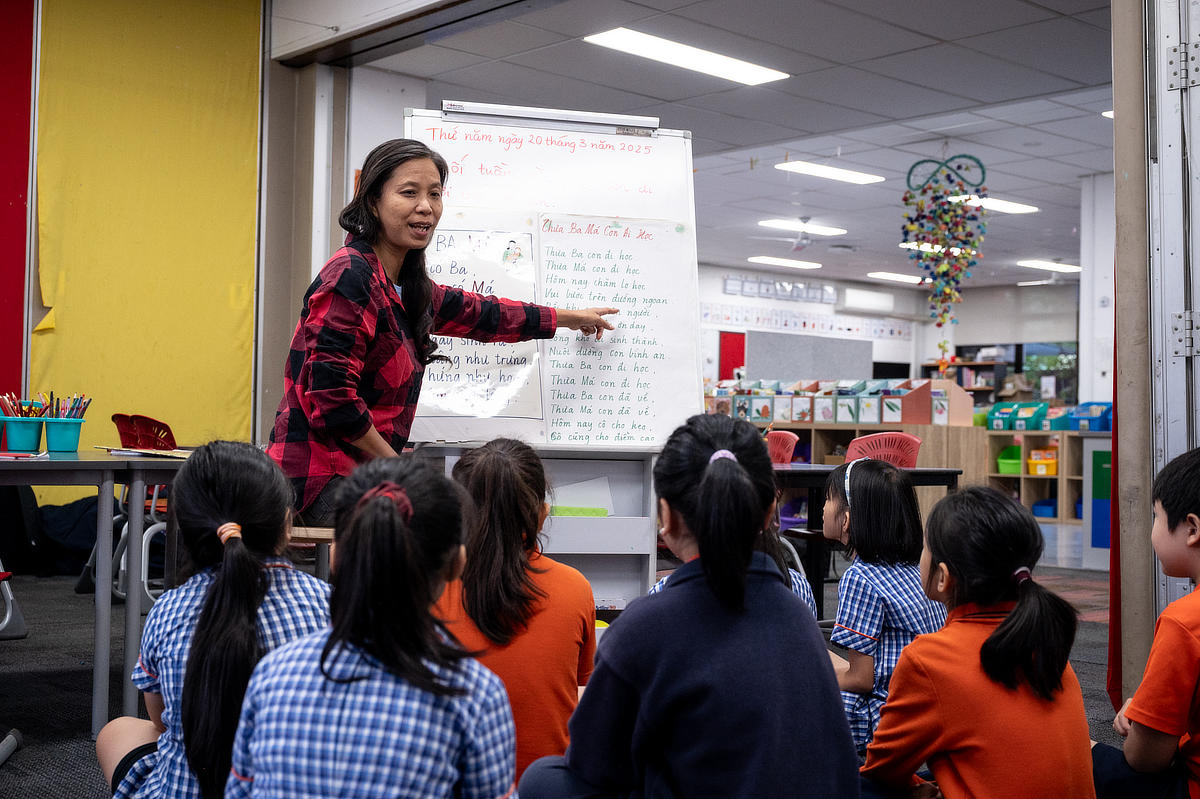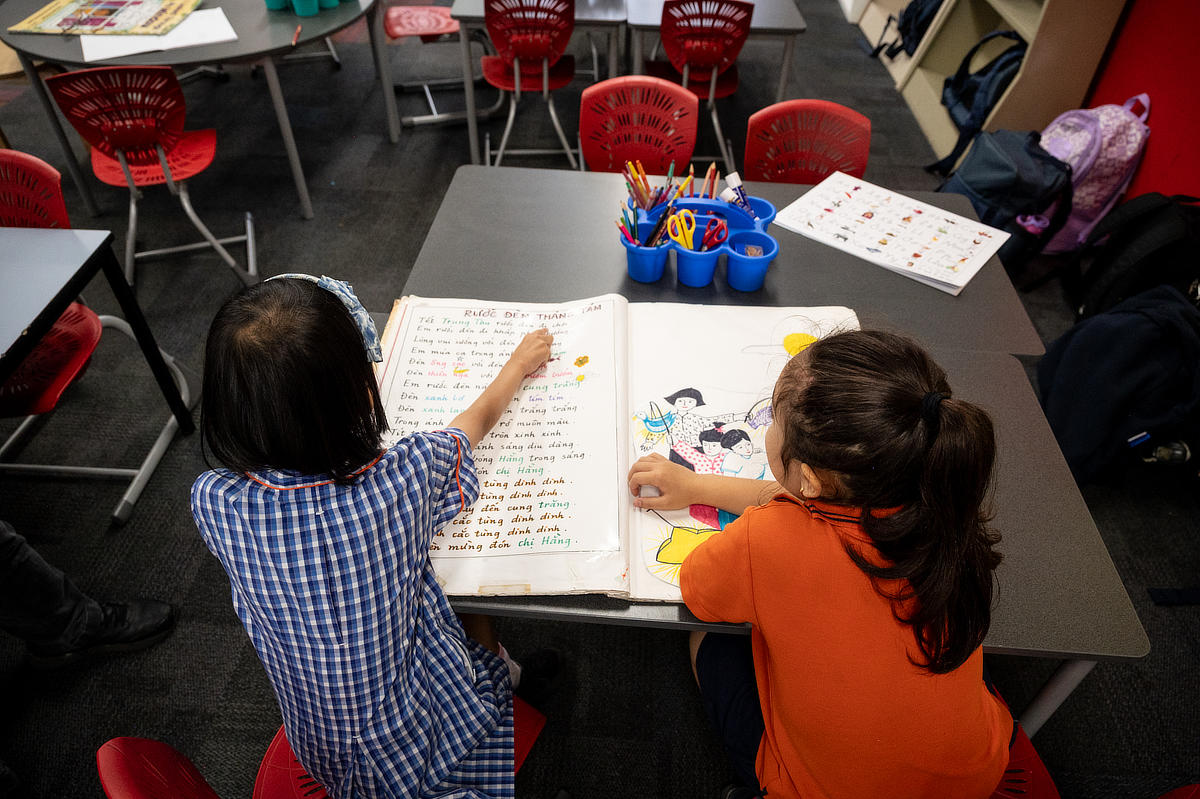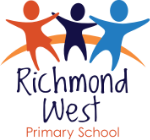Learning
Curriculum
Reading
At Richmond West Primary School, we teach reading using evidence-based practices grounded in the science of reading. Our structured reading approach includes daily phonemic awareness sessions in the early years, and phonics instruction through the Sounds Write model. For students who need extra support, we provide targeted interventions through small group and individual support.
As students progress through the year levels, they develop the “Big Six” reading components: oral language, phonemic awareness, phonics, fluency, vocabulary, and comprehension. Reading skills are built through whole-class lessons, small-group focus, and independent reading practice. Our vibrant classroom and school libraries offer rich literary experiences, helping to spark a lifelong love of reading.
We also integrate reading into Inquiry through Read2Learn, a knowledge-rich comprehension program that aligns with our broader curriculum goals.
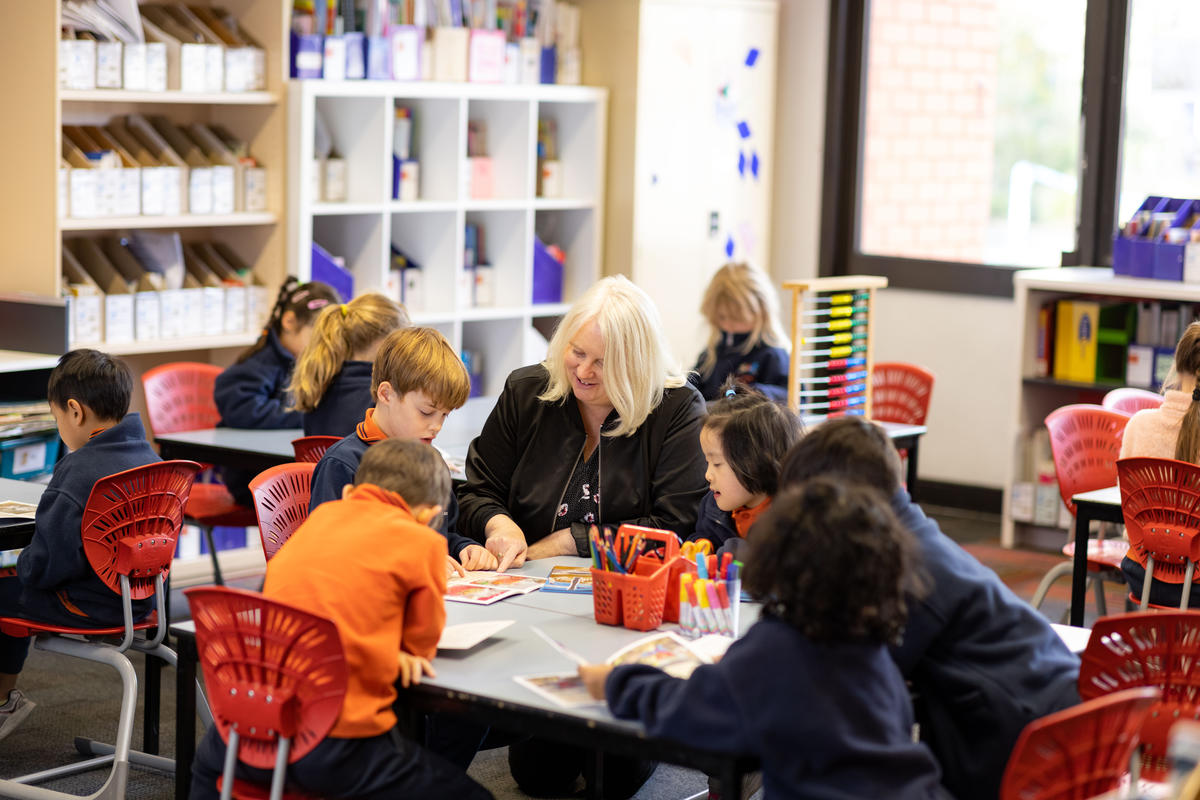
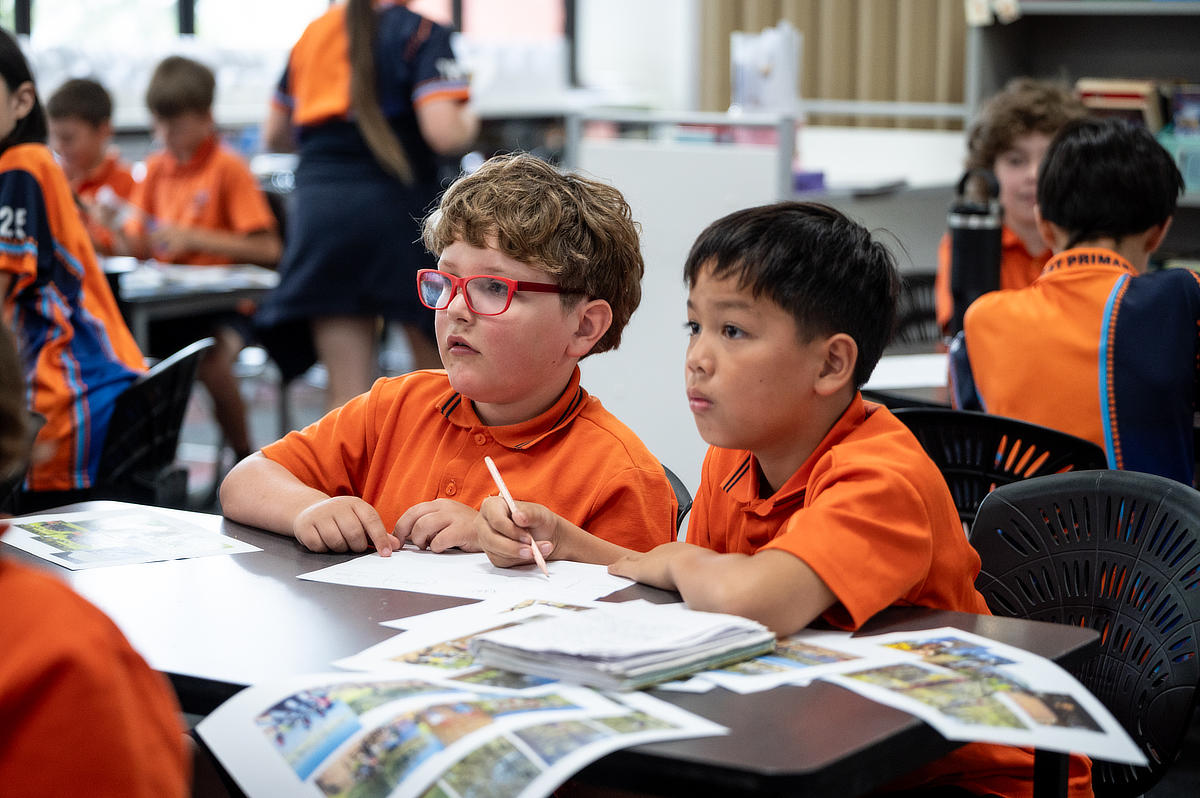
Writing
Our writing program supports students to become confident and expressive writers. We use Talk for Writing and the 6+1 Traits of Writing to develop students’ understanding of text structures, authorial voice, and writing conventions. Through oral storytelling, shared writing, innovation on model texts, and independent composition, students gain both skill and creative confidence.
Writing instruction is embedded in our daily two-hour literacy block, with a strong focus on grammar, punctuation, and spelling. The Writer’s Workshop model helps students understand how language is structured and used for different purposes and audiences.
Speaking and Listening
We believe that oral language is at the heart of all literacy development. Our classrooms are rich in structured talk and purposeful communication. Students engage in discussions, presentations, retelling, and collaborative dialogue from their earliest years.
Through daily speaking and listening opportunities, students learn to express their ideas clearly and listen actively to others. This includes explicit teaching of listening strategies, turn-taking, questioning, and reasoning. In line with our school motto – Many Languages, One Voice – we celebrate the multilingual backgrounds of our students and ensure that every child has a voice in our learning community.
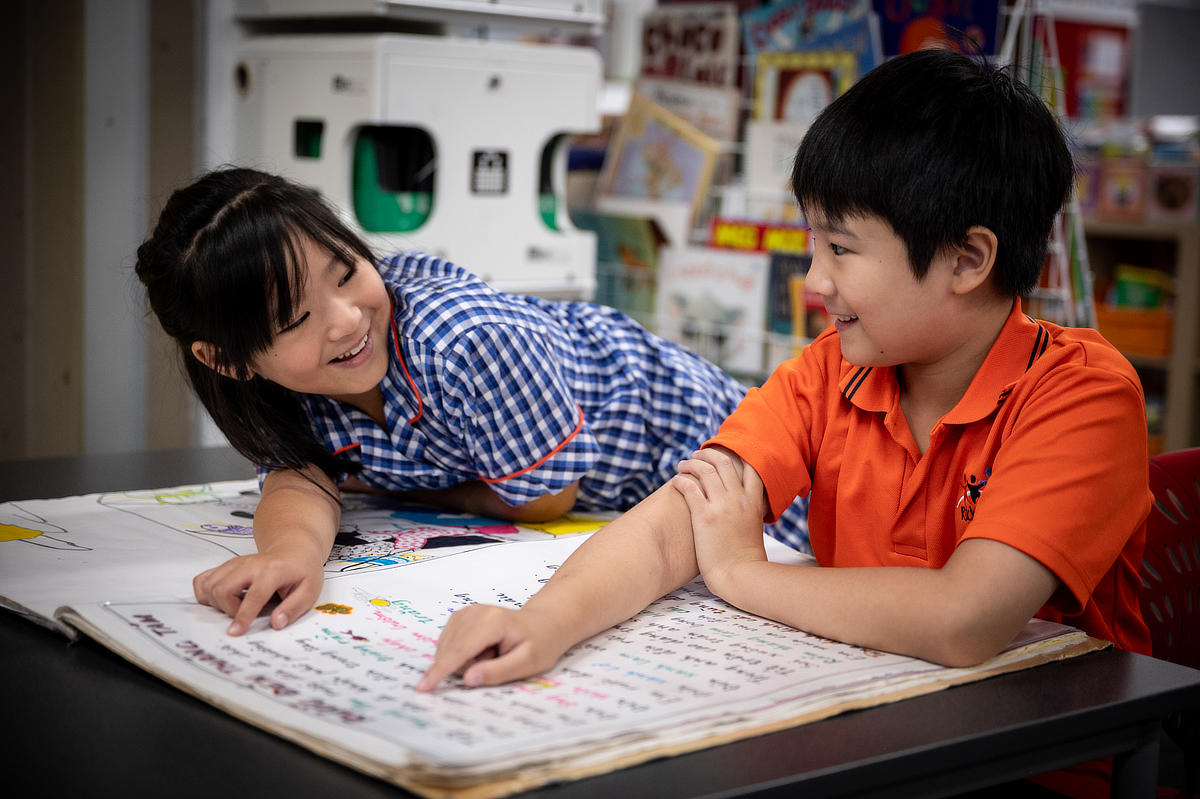
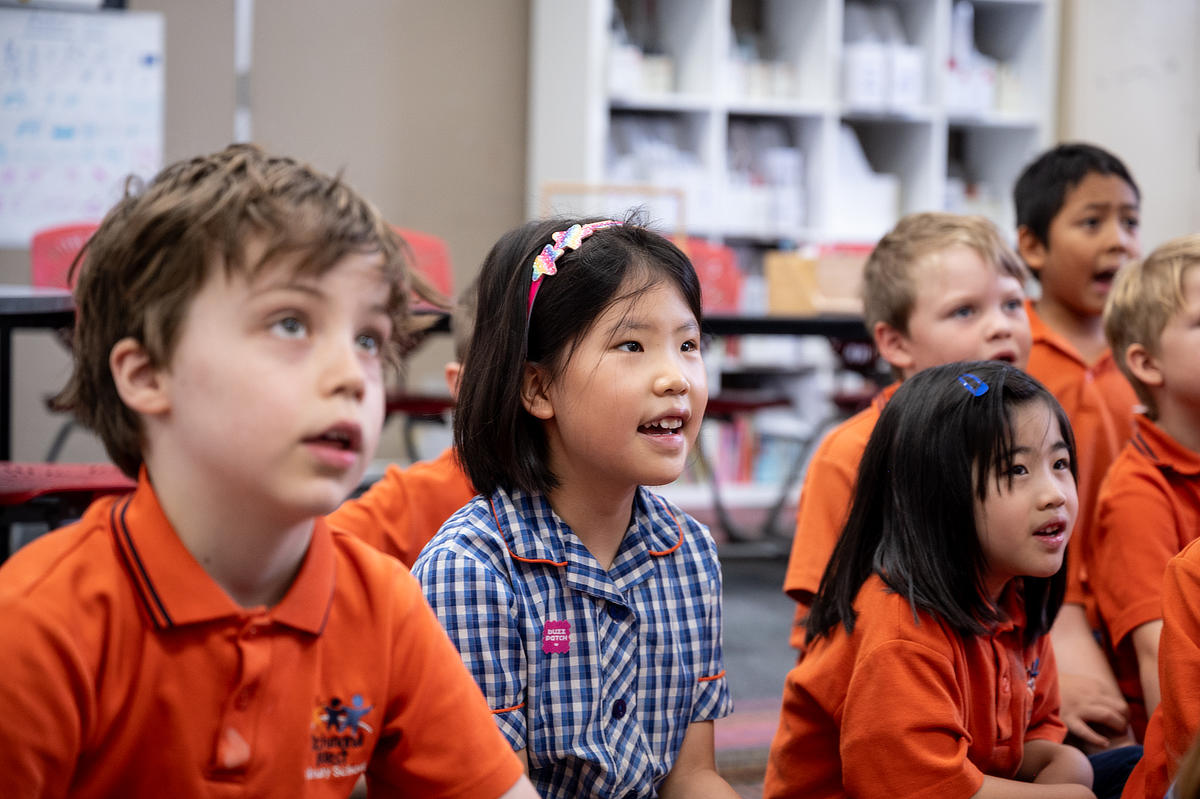
Inquiry
Our Inquiry curriculum connects learning across multiple disciplines and encourages students to ask questions, explore ideas, and construct knowledge. It is guided by key concepts and big questions that develop students’ critical and creative thinking skills.
Literacy is deeply embedded in our Inquiry units. Students read to learn, conduct research, analyse information, and communicate their findings in a range of formats. Inquiry learning fosters curiosity, collaboration, and a deeper understanding of the world around us, aligning with our commitment to global citizenship and interdisciplinary thinking.
Numeracy
Numeracy is taught through six structured lessons per week, where students build deep understanding across Number and Algebra, Measurement and Geometry, and Statistics and Probability. Our program focuses on developing fluency, reasoning, problem-solving, and mathematical modelling.
We use open-ended and investigative tasks to foster a growth mindset, encouraging students to take risks, explore multiple strategies, and understand that effort leads to improvement. Small-group instruction and differentiated activities ensure every learner is supported and challenged.
Authentic contexts and real-life applications are used regularly, making maths meaningful and connected to students’ everyday experiences.
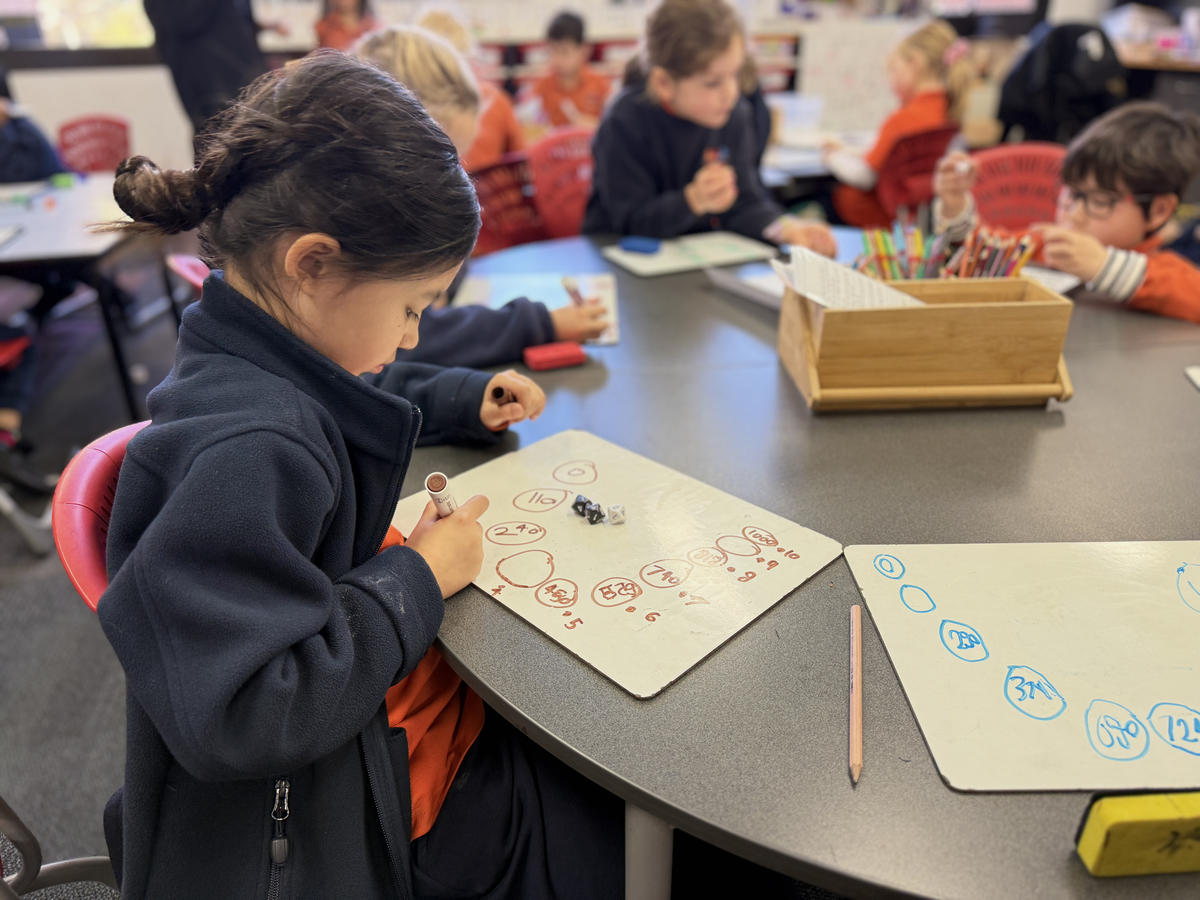
Specialist Program
All students participate weekly in a one hour lesson with our highly skilled specialist teachers in the areas of Performing Arts, Visual Arts, Physical Education and STEM-(Science and Technology focus)
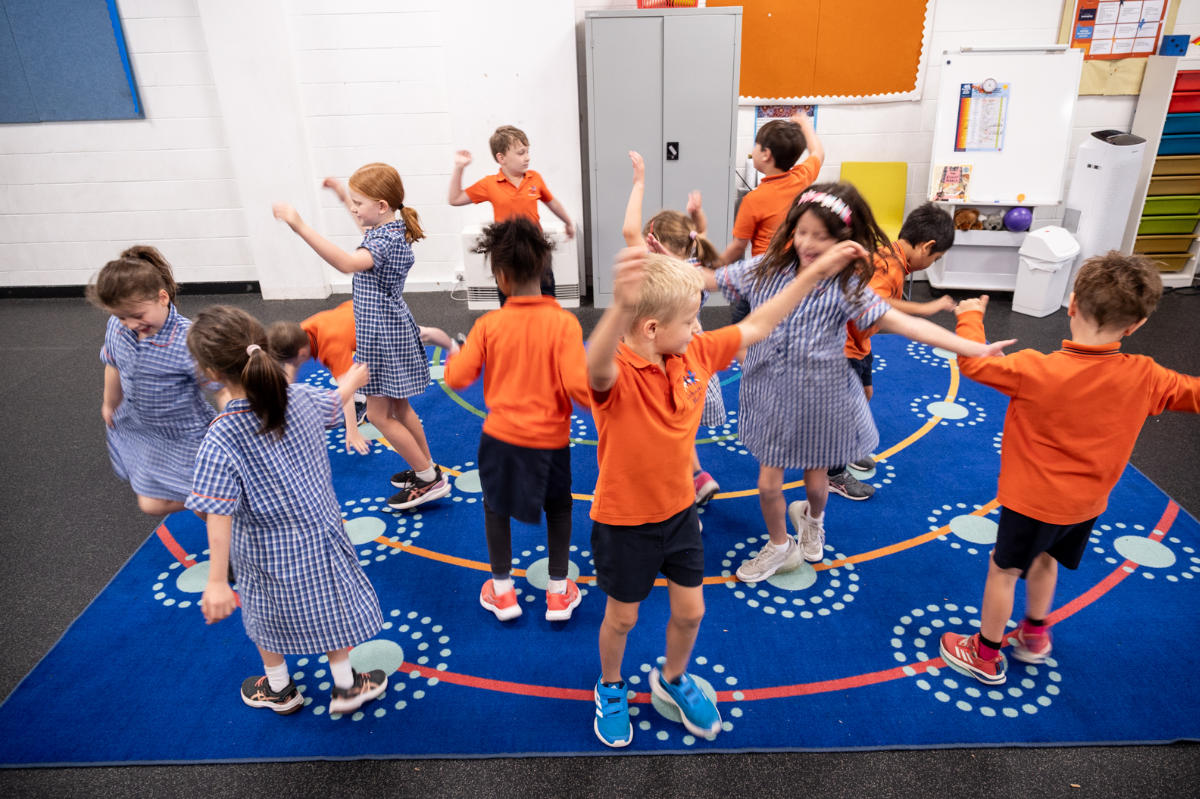
Performing Arts
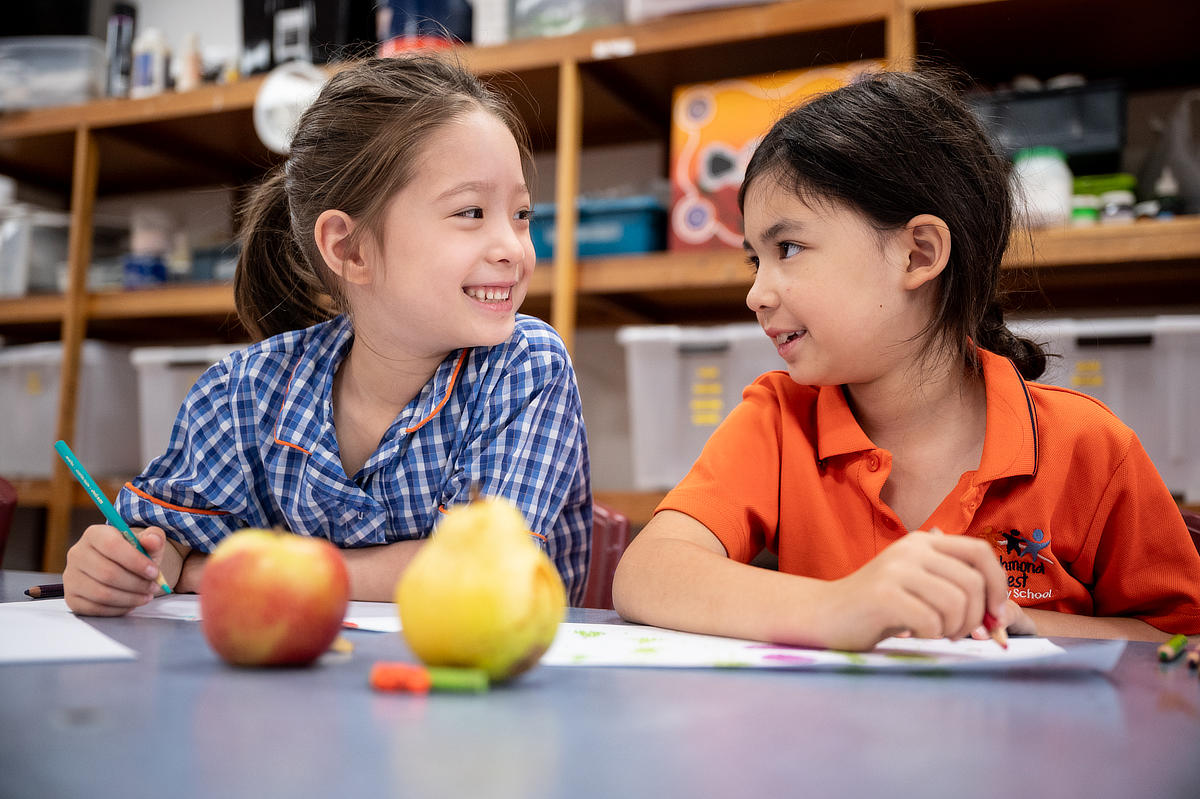
Visual Arts

Physical Education
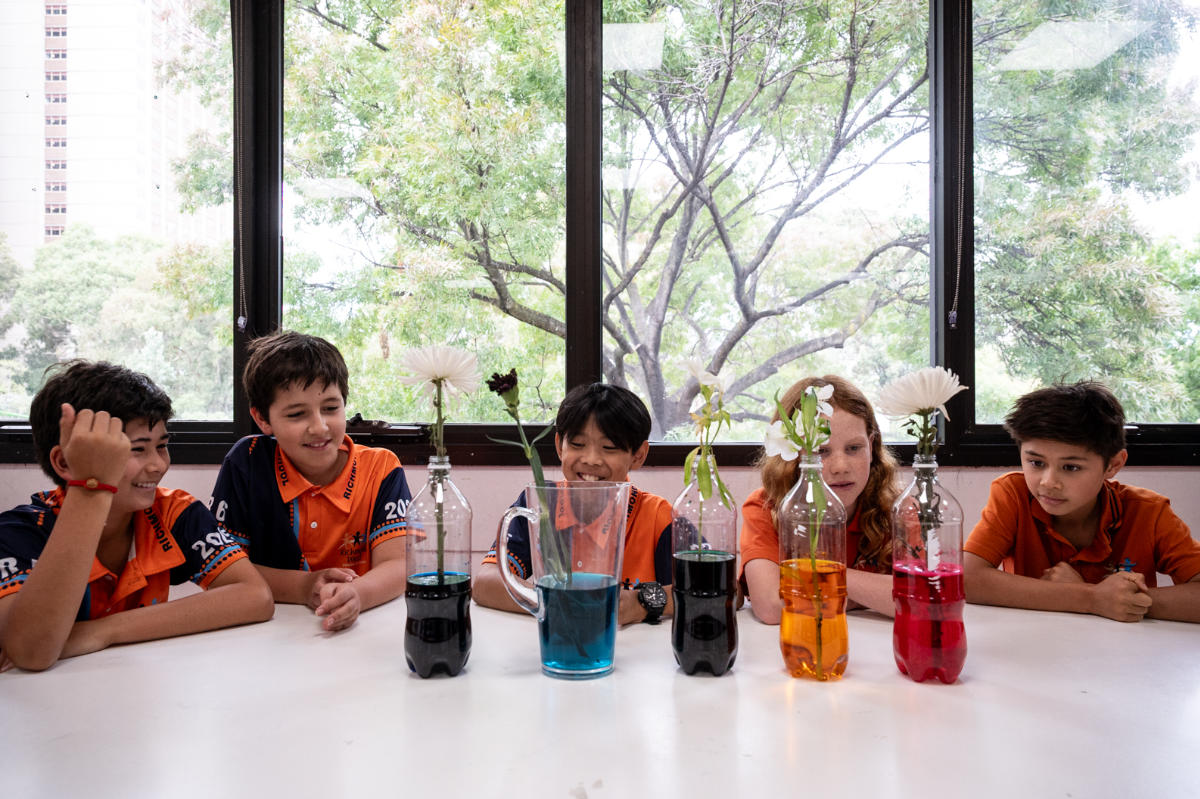
STEM
Wellbeing
At Richmond West Primary School, we prioritise student wellbeing as a fundamental aspect of our educational approach. Our goal is to cultivate students who are not only academically successful but also optimistic, resilient, creative, and critical thinkers.
We are committed to instilling our school values of Belonging, Resilience, and Striving for Personal Success in every aspect of our school community. This includes integrating these values into our curriculum, co-curricular activities, and daily operations.
Recognising that wellbeing is essential for academic success, we offer a comprehensive Social and Emotional Learning program (SEL) to support students in developing emotional intelligence, building respectful relationships, and fostering positive behaviours throughout the school.
Through our approach to wellbeing, students are encouraged to enhance their self-awareness, self-management, social awareness, relationship skills, and responsible decision-making. By empowering students with these essential life skills, we aim to nurture their emotional intelligence, resilience, and ability to make informed and ethical decisions in both their personal and academic lives.
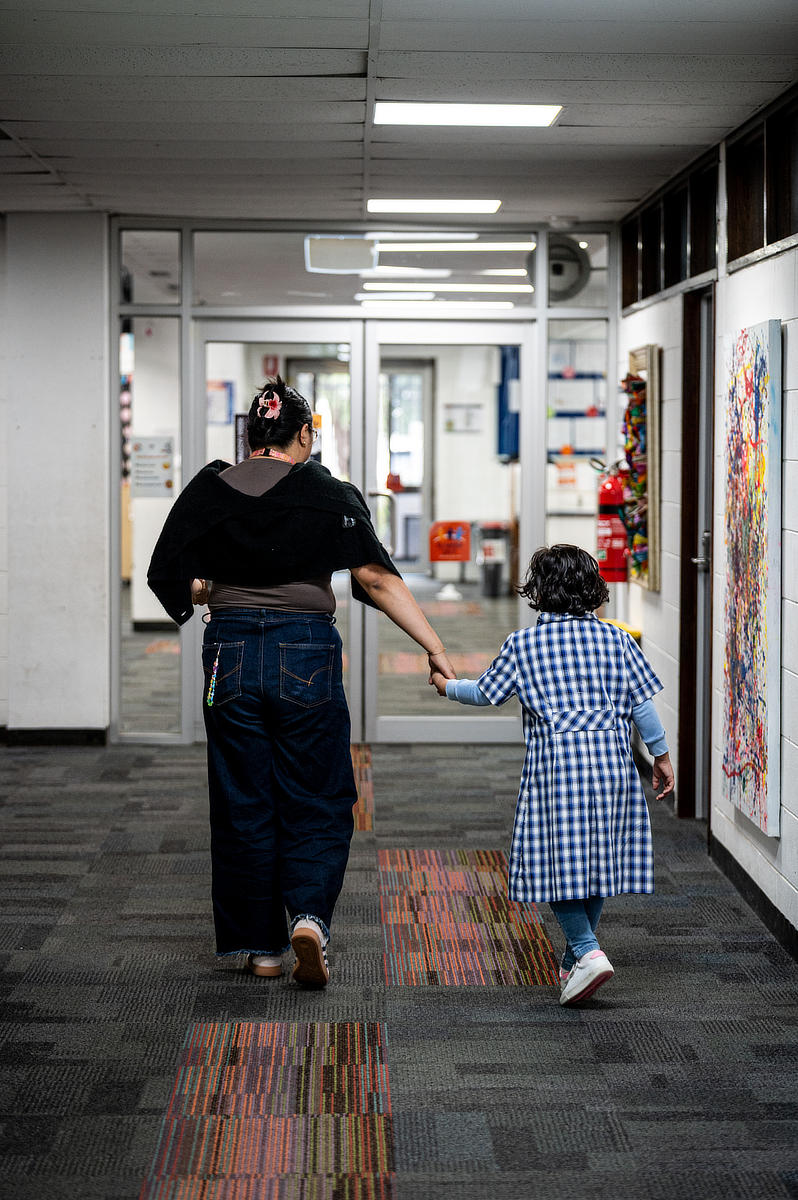
Student Voice
We believe in nurturing young minds and fostering a sense of student agency. At our school, we recognize that each student is a unique individual with the potential to make a positive impact. Our Student Voice and Action Team are shining examples of this belief in action. These groups empower students to have a voice in shaping their school experience. Through meetings, discussions, and collaborative projects, students develop leadership skills, learn the value of teamwork, and actively participate in decision-making processes that affect their learning environment.
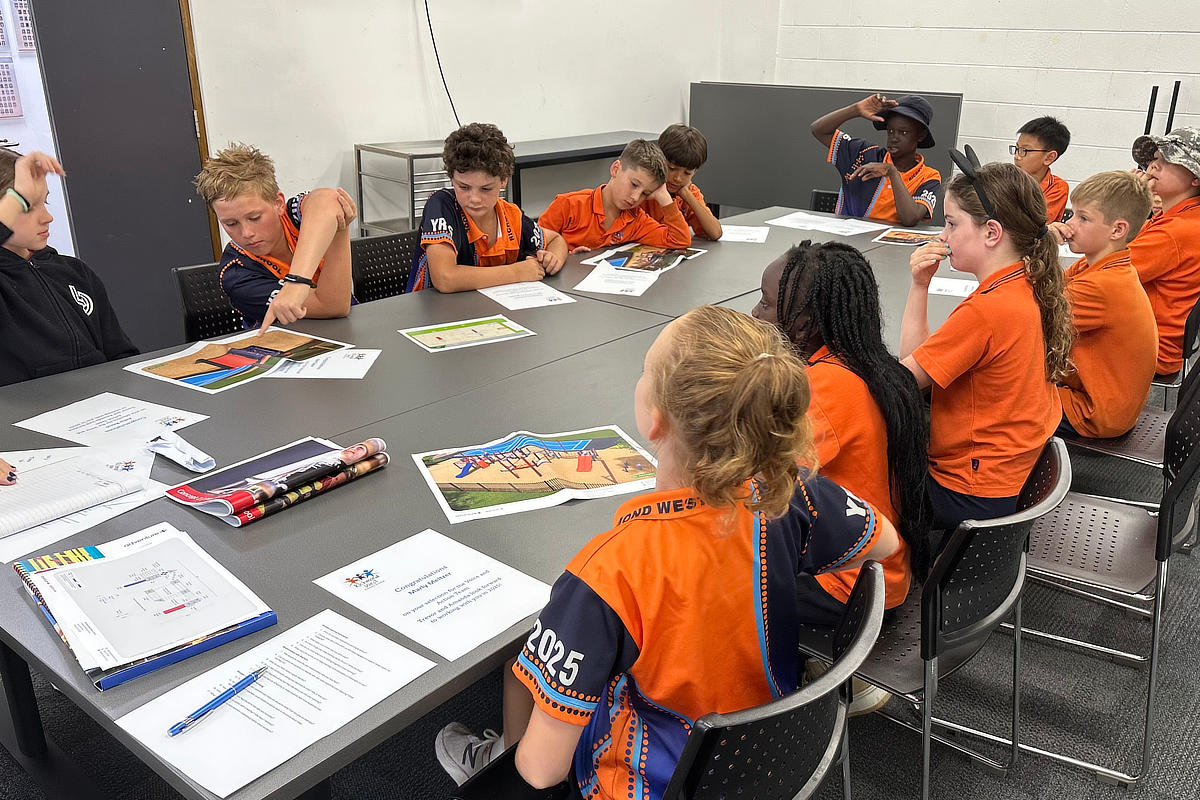
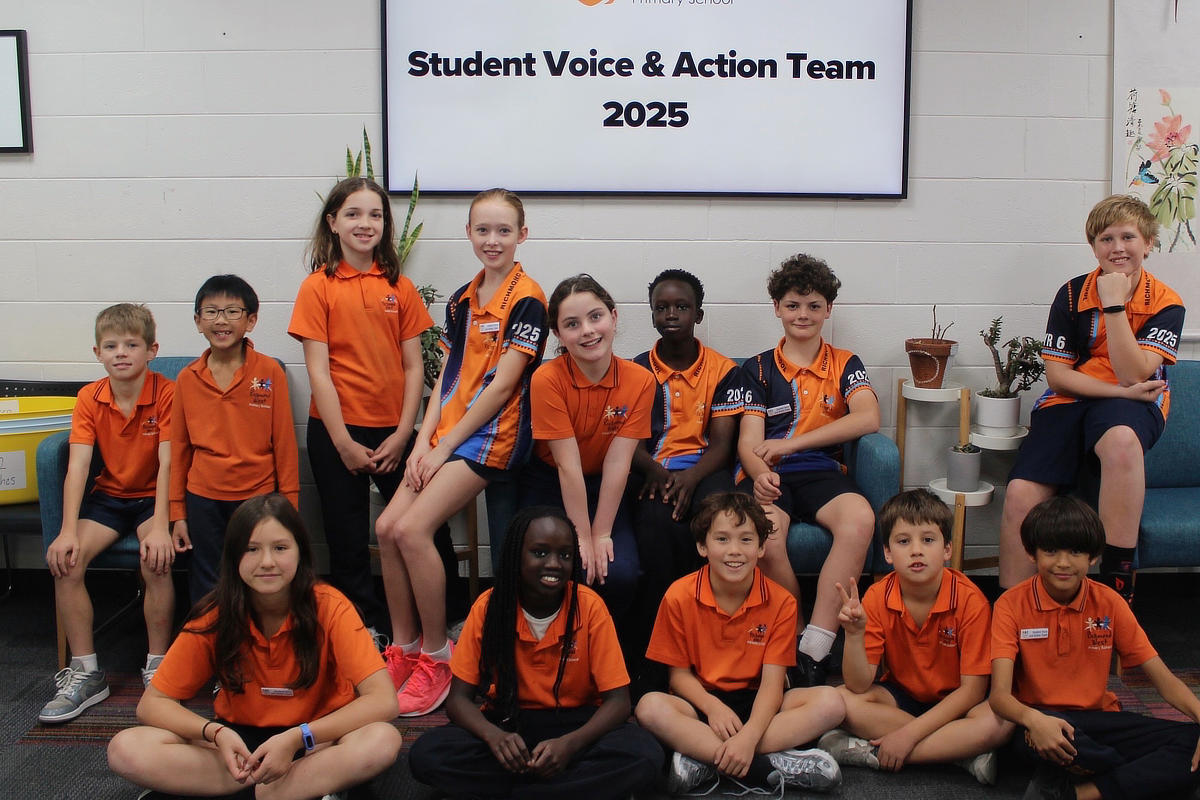
Vietnamese
Vietnamese at Richmond West Primary School
Richmond West Primary School offers a partial immersion Vietnamese Language Program.
- Students in Foundation to Year 2 participate in five hours of Vietnamese each week.
- Students in Years 3 to 6 receive two hours of Vietnamese language instruction each week.
Learning Vietnamese
Vietnamese is the official language of Vietnam, spoken by around 90 million people in Vietnam and millions more around the world, including in Australia. The modern standard version, Tiếng Việt, is a tonal language written using the Roman alphabet, with additional marks (diacritics) to indicate tone.
Tone plays a key role in Vietnamese. A single word – like ma – can have different meanings depending on how it’s pronounced. This makes pronunciation, intonation and listening skills vital parts of learning.
Students also explore how Vietnamese is shaped by culture. For example, personal pronouns in Vietnamese vary depending on age, gender and social relationship, an important part of respectful communication. Students learn how to use terms like em, anh, chị, cô, ông, bà, con and cháu appropriately in different contexts.
The Vietnamese language is rich in imagery, with frequent use of idioms, proverbs and metaphors in daily conversation and literature.
Building Intercultural Understanding
Our Vietnamese program supports more than just language learning, it builds intercultural awareness. As students move between Vietnamese and their first language(s), they begin to see the world from different perspectives and develop deeper understanding of both themselves and others.
The curriculum is designed to foster curiosity, reflection and communication across cultures. By learning Vietnamese, students gain valuable insights into how language and culture are connected, and how to navigate the world with greater empathy, confidence and global awareness.
